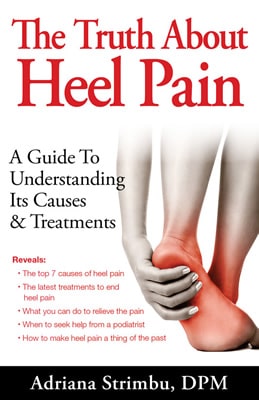In some cases of osteoarthritis of the ankle, the damage caused by the deterioration of the bones rubbing against each other may lead to some form of surgery. This is not a decision to be taken lightly, because it can permanently affect your lifestyle and the movement of your ankle joint. Osteoarthritis is degenerative, where the cartilage between the talus bone in the heel and the tibia in the leg erodes. As a result the bones press on each other and wear away. Three main types of ankle surgery are joint replacement, fusion and triple fusion. Joint replacement surgery removes the damaged ends of the bones and replaces them with metal or plastic ends, which can last for up to 15 years. Triple fusion surgery involves using screws, staples or plates to fuse three bones. It may take up to 3 months for the fusion to be complete. Ankle fusion connects the end of the talus bone in the heel to the end of the tibia in the leg. The ankle loses all mobility, but remains pain-free. If you have ongoing ankle pain that has become severe enough to affect your daily life, it is suggested that you discuss your options with a podiatrist at your earliest convenience.
Ankle pain can have many different causes and the pain may potentially be serious. If you have ankle pain, consult with Adriana Strimbu, DPM from Complete Foot & Ankle Care. Our doctor will assess your condition and provide you with quality foot and ankle treatment.
Ankle pain is any condition that causes pain in the ankle. Due to the fact that the ankle consists of tendons, muscles, bones, and ligaments, ankle pain can come from a number of different conditions.
Causes
The most common causes of ankle pain include:
- Types of arthritis (rheumatoid, osteoarthritis, and gout)
- Ankle sprains
- Broken ankles
- Achilles tendinitis
- Achilles tendon rupture
- Stress fractures
- Tarsal tunnel syndrome
- Plantar fasciitis
Symptoms
Symptoms of ankle injury vary based upon the condition. Pain may include general pain and discomfort, swelling, aching, redness, bruising, burning or stabbing sensations, and/or loss of sensation.
Diagnosis
Due to the wide variety of potential causes of ankle pain, podiatrists will utilize a number of different methods to properly diagnose ankle pain. This can include asking for personal and family medical histories and of any recent injuries. Further diagnosis may include sensation tests, a physical examination, and potentially x-rays or other imaging tests.
Treatment
Just as the range of causes varies widely, so do treatments. Some more common treatments are rest, ice packs, keeping pressure off the foot, orthotics and braces, medication for inflammation and pain, and surgery.
If you have any questions, please feel free to contact our office located in Hallandale Beach, FL . We offer the newest diagnostic and treatment technologies for all your foot care needs.






